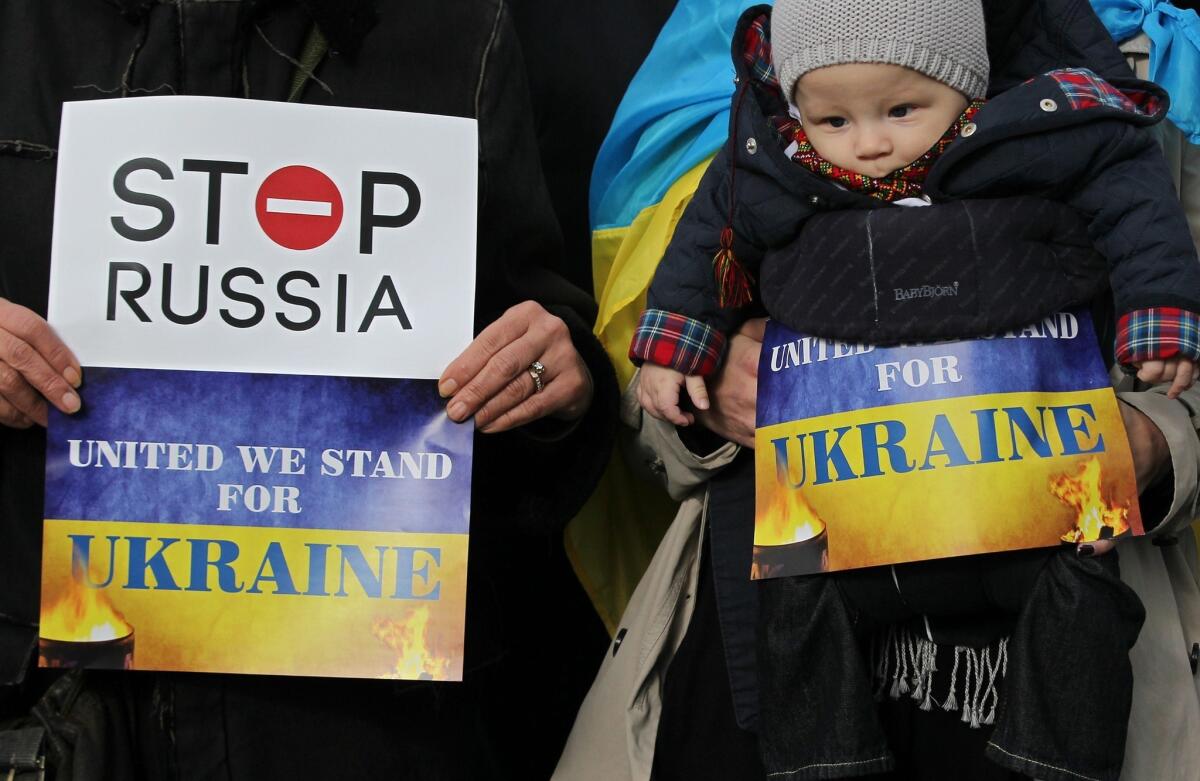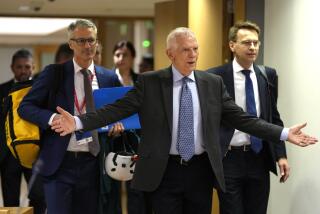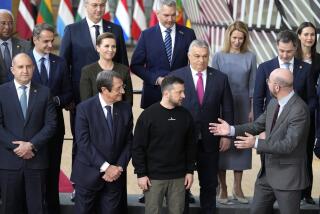EU demands Russian withdrawal in Crimea but stops short of sanctions

LONDON – The European Union on Thursday reiterated its demand that Russia withdraw its forces in the Crimea, called off talks on a trade pact with Moscow and warned of economic sanctions if the situation in Ukraine worsens.
However, the leaders ducked imposing such penalties immediately, which the U.S. has done and which some EU countries urged.
At an emergency summit in Brussels, leaders from the 28 EU member states said that direct talks between Russia and Ukraine must start “within the next few days” to defuse the tension over Moscow’s incursion into the Crimea. The negotiations should bear fruit “in a limited time frame,” the leaders’ communiqué said.
Absent such talks, the EU would consider travel bans on Russian individuals, asset freezes and cancellation of an EU-Russia summit, the leaders said.
That would come on top of the suspension, effective immediately, of discussions on liberalizing visas for Russians to enter EU countries and on a wide-ranging trade pact between the European organization and Moscow. Preparations by EU nations scheduled to participate in a Group of 8 meeting in the Russian city of Sochi, where the Winter Olympics just concluded, have also been halted.
Angered by the announcement Thursday of a referendum in Crimea on whether the region should break away from Ukraine and join Russia, European leaders warned that harsher consequences would follow “any further steps by the Russian Federation to destabilize the situation.” Such consequences would include penalties in “a broad range of economic areas.”
With the threat of sanctions, the statement was stronger than some observers had expected but fell short of the immediate action that some EU members wanted, including Baltic countries and former Soviet bloc nations wary of Russian aggression.
Their push to impose penalties right away was countered by caution from Germany, the EU’s biggest economy, which has deep trading ties with Moscow and depends on major imports of Russian oil and gas. Critics have accused Berlin and others hesitant to enact sanctions of putting profits before principle.
British Prime Minister David Cameron, who advocates stronger action, said that the EU is “facing the most serious crisis in Europe this century” but acknowledged that “getting agreement from the elected leaders of 28 European nations is never easy.”
European officials bristled at suggestions that the EU was lagging behind the U.S. and too soft toward Moscow.
“We are not here competing with any of our partners in terms of the response,” said Jose Manuel Barroso, the head of the European Commission, the EU’s executive arm. “What is important for us is to create the right conditions for a peaceful, negotiated solution for Ukraine.”
Twitter: @HenryHChu
More to Read
Start your day right
Sign up for Essential California for news, features and recommendations from the L.A. Times and beyond in your inbox six days a week.
You may occasionally receive promotional content from the Los Angeles Times.







